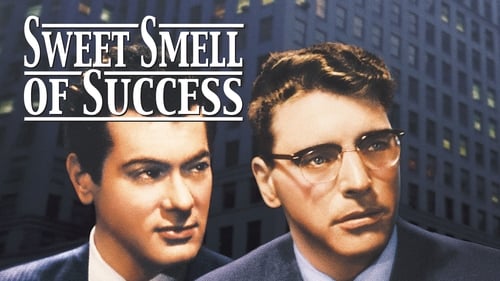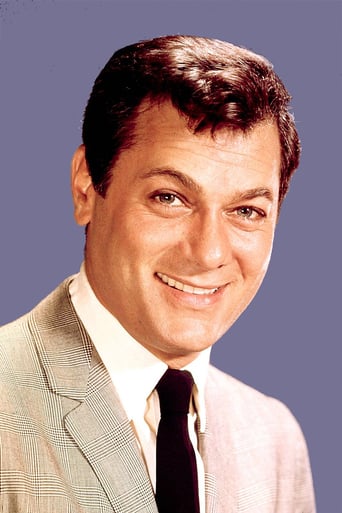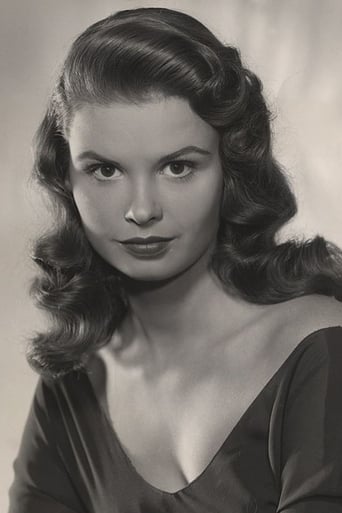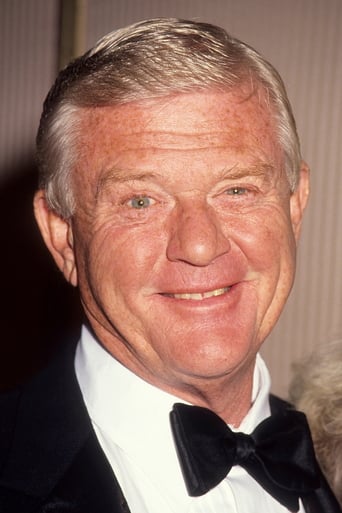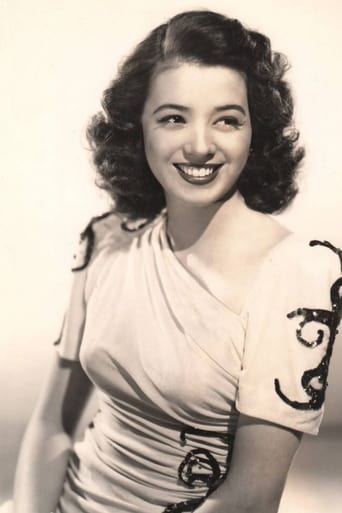Protraph
Lack of good storyline.
Teddie Blake
The movie turns out to be a little better than the average. Starting from a romantic formula often seen in the cinema, it ends in the most predictable (and somewhat bland) way.
Leoni Haney
Yes, absolutely, there is fun to be had, as well as many, many things to go boom, all amid an atmospheric urban jungle.
Nicole
I enjoyed watching this film and would recommend other to give it a try , (as I am) but this movie, although enjoyable to watch due to the better than average acting fails to add anything new to its storyline that is all too familiar to these types of movies.
TheBigSick
Fast paced, well acted, tautly directed, and carefully scripted, this superb thriller, in a realistic way, develops a gut-wrenching story, depicts some memorable characters and above all represents the filmmaking of the highest level. It is so dark that you almost feel despair about the world. The dramatic tension is raised a historically new height. If you use one word to describe the movie, then it should be jaw-dropping, which means that you will never close your mouth until the end of the movie.
jacobs-greenwood
Tony Curtis plays the slimy, self-loathing ambitious press agent Sidney Falco, who feeds gossip to the all powerful New York columnist, radio & TV media powerhouse – modeled after Walter Winchell – J.J. Hunsecker (AFI's #35 villain), played ruthlessly by Burt Lancaster.Hunsecker treats Falco, and virtually everyone else he encounters including a Senator who is beholden to him, like "a poodle" that will "jump through flaming rings" for him, or so says Hunsecker's weak and vulnerable younger sister Susan (played by Susan Harrison); of course, Falco will.The columnist, who wields his power confidently, fearlessly, is particularly upset with Falco for not doing him a favor by breaking up his sister's love for a young, up-and-coming musician named Steve Dallas (Martin Milner). Hence, he's cut off the publicity man's ability to continue to make his living by selling access to his powerful associate's column.Hunsecker justifies his actions because his warped mind has enabled him to believe that he is the lifeblood of the 60 million people who read his column, and that what he does is somehow patriotic (when he's really a scoundrel). But J.J.'s weakness is his sister; he acts like a father-figure and believes himself to be her protector because she's really all he's got. He tries to (surreptitiously, through Falco) control her life by crushing anyone (like Dallas) that comes between them and threatens to bring about the lonely, miserable life he'd have without her.Falco avoids his own secretary (Jeff Donnell) because she reflects the conscious and self respect that he should have, but doesn't. Sam Levene plays the musician's agent; Emile Meyer plays a meat-fisted cop who owes Hunsecker a favor. Barbara Nichols plays a pathetic cigarette girl whose misguided love Falco uses to advantage for his own sordid purposes.Directed by Alexander Mackendrick, who'd received his only Oscar recognition for co-writing The Man in the White Suit (1951), the drama was written by Clifford Odets and Ernest Lehman. The film was somehow completely and inexplicably snubbed – especially its lead acting and James Wong Howe's gritty B&W cinematography – by the Academy, though it was added to the National Film Registry in 1993.
sharky_55
Is the goodness of their actions ever questioned by the men in Sweet Smell of Success? They are all selfish, and scan their targets with steely eyes that betray their desires. They feel entitled to these things, as if a little power makes any obstacle move out of their way. Late in the film, Sidney Falco is seemingly at a moral impasse, the slimy press agent himself outraged at the lows that his boss would go to to destroy a young man's life and career. But like the whipped dog he is, Falco is instantly panting and begging when J.J. dangles the possibility of taking over the main column for an extended period of time. From this we can extrapolate that J.J. is used to snapping his fingers and quickly getting his way - and no one, not until the very end of the film, has ever stood up against him. Steve Dallas does so in a minute, almost insignificant manner, and J.J. sets his sights on obliterating him, and cannot be swayed by anyone else. His introduction is a key scene, telling us as much about him from the man himself but also how he affects the behaviour of those around him. See how Lancaster controls the table with an air of absolute authority, his gaze daring you to utter a wrong word. Observe how his thick browline glasses add deep dark furrows over his eyes, giving him the constant appearance of an oversized bully. The rest of the characters are flustered - they attempt to quickly seize any opportunity in the conversation to impress, and are disturbed by how Lancaster is unperturbed at these interruptions. Nothing can distract the king from his duties. Mackendrick is never shy about hiding his film's noir elements. James Wong Howe's photography utilises the deepest of blacks that hide depravity in every corner of the room, and focuses the key lights so that each image produces a stark contrast; see how simply a hat's shadow can make J.J. into a sinister monster. And the dialogue is snappy and distinct; maybe a little too flashy for what the hardboiled setting entails, with its smoky, jazz-filled bars, murky streets and even murkier inhabitants. But perhaps it envisions the city as J.J. sees it, the setting plucked straight from an old pulpy novel. When he stands on the rooftop and looks over his kingdom, night-time New York almost seems like a gliterry paradise, and the man who rules it almost seems like a guardian. In the end Falco gets beaten by the corrupt cops and arrested, no doubt off for a lengthy prison sentence. This makes some sense from a moral perspective, and we feel justice has been served. Susan, the angel within the dark reaches of the city, is driven to the very depths of despair, but only momentarily, and is the only one to walk away with a brighter future in mind. The sorriest of them all is J.J., who by trying to control everything has lost even himself and his sense of decency towards his family, and in the end, is the loneliest and most despondent of them all. Could we ever imagine his beginnings as a decent man, whose good intentions have spiralled into an overly obsessive and corrupt tirade? Lancaster makes it very difficult, and possible.
reyesking
The drama in this film is severe. The crisp silhouettes, and the heavy lighting from the neck up makes for sharp, glossy shots. the style of the picture is certainly something to appreciate as well. the witty, intellectual dialogue, the jazzy night clubs and all the sleazy characters makes "the scene" of the 1950s devilishly glamorous. "sweet smell of success" is directed by Alexander Mackendrick and stars Burt Lancaster and Tony Curtis. although if caution is not taken following the film closely it seems to be quite easy to miss something very important especially since our protagonist are constantly plotting and scheming against each other through out the film. Burt Lancaster as j.j is a deviant, malicious Broadway columnist is quite unsettling. smart and powerful j.j is disturbingly sneaking and a master at scheming. this film can make for a great psychological suspense.






